
London 2012: Women's Match Racing finale
So much for form guides. The final of the Women’s Match Racing ended up being between the Australian team of Olivia Price, Nina Curtis and Lucinda Whitty and the Spanish team of Tamara Echegoyen, Sofia Toro and Angela Pumariega. Going into the Games, they were ranked sixth and eighth respectively in our form guide, as they also were in the ISAF rankings.
The young Australian team had won Skandia Sail for Gold, but otherwise had had fairly deep results through the year while the Spanish finished 12th at the last two World Championships and hadn’t even reached the podium at the major events leading up to London 2012. Yet coming out of the Round Robins in the first week Price’s team was the only one to maintain a 100% win rate, while Echegoyen’s crew were third equal with the US favourites led by Anna Tunnicliffe.
In front of the Nothe crowd, with the wind up to 22 knots from the ESE and a substantial swell rolling in, the Final between the two teams went to the wire.
The first race was close where after a dial up in the pre-start, the lightweight Elliott 6s going astern at pace, the Spanish gained the early advantage as the Aussies were over early. This didn’t cost them greatly, they made up ground but despite getting close as the two boats surfed in towards the finish line, the Aussies were never able to overtake. First point to Spain.
In the next the Aussies were a nose ahead off the line hoding the weather berth, sailing the Spanish off to the port layline before leading them into the top mark and then around the rest of the race course. 1-1.
The third race was the most dramatic with the wind having built to 24 knots. In this the Australians were a nose ahead off the line but by playing the right, it was the Spanish who rounded the top mark first, the Aussies on their transom. But with the Elliott 6s blasting downwind on the run, the Australians caught one wave better and briefly overhauled the Spanish before their boat spun into a Chinese gybe causing helmswomen Olivia Price to be washed overboard in the process.
“The sea state was quite large and one of the waves just picked the boat up and we Chinese gybed and I wasn’t holding on quite enough and I just got swept straight out the back,” recounted Price later. She attempted to swim back to the boat as Curtis and Whitty now doublehanded got the boat under control, dowsing the kite beforecircling back to pick up their swimming skipper. Another point to the Spanish.
Despite their set-back the young Australians recovered impressively well and were ahead at the top mark of their fourth race and continued to lead around the rest of the course. Even stephens again.
In the decider, the Spanish were to windward coming out of the blocks and up the first beat controlled the right to lead around the top mark with a two boat length lead. The sea state was still up for the run and the Aussies managed to surf past the Spaniards only to then receive a red flag penalty. They seemed to have carried out their turn but the penalty flag was still flying on the umpire boat, and it later transpired that the umpires had deemed that the Australians hadn’t completed their turn adequately.
As Price later explained: “The rule is that you have to go below 90° after the tack – I thought I did and the umpires thought that I didn’t, but that is the way that it goes: The umpires make the decisions.”
And so Tamara Echegoyen’s Spanish team won gold in the Women’s Match Racing at London 2012, the third medal for Spain of the Games, the second being Marina Alabau’s gold in the RS:X Women.
“With the pressure of a gold medal it was one of my hardest day’s of sailing,” admitted Angela Pumariega, who works the bow of the Spanish boat. “But we enjoyed it very much the sailing today. It was very good.”
In the build-up to London 2012, the Spanish team had trained a lot in Weymouth to acclimatise to the usually brisker conditions than they typically enjoy out of their base in Santander, lining up frequently with Anna Tunnicliffe’s US team and the Russians led by Ekaterina Skudina.
Mostly through their campaign they were coached by the Spanish Olympic sailing team manager Santi Lopez-Vazquer, over the last six months they received additional help from Toni Otero, who previously was coach to the Bribon TP52 team.
But the Australian performance this week that has been particularly of note, a very mature performance from the youngest team - Price is only 19, Curtis and Whitty 24 and 22 respectively.
Price gave her take on the final: “Really happy with the silver. We really gave it our all and the Spanish sailed really well today. Conditions were quite wild. I got thrown overboard by a wave - it was quite a shock to the system but we really didn’t give up, we just kept going the whole time. I am really proud of how we sailed.
“I have had the most amazing experience and the most amazing four years with these girls. We have trained hard, we have given our all at all the regattas. We have been part of such an amazing sailing team, the Australian Sailing Team who have supported us in everything we have done and our supporters back home...everything has just been amazing. I really can’t describe it.”
The Aussies was typically just a fraction better in their boat handling and paid considerable attention to the kinetics on board. One observer also noted that their team had adopted a new, smoother tacking style a couple of regattas out from the Games, which most of the fleet had then attempted to copy.
While the US team had had a trials to get the Women’s Match Racing berth at London 2012, ultimately won by Anna Tunnicliffe, the Australian team had used a squad approach, similar to the Dutch Yngling campaign for Beijing. From a squad of 12, Price finally got together with Curtis and Whitty a year ago. “It was good,” said Price of this system. “It pushed everyone and everyone increased at a really high rate. It was a good idea.”
In the 18 months leading up London 2012 they had 18ft skiff skipper Euan McNicol as their coach. “We owe so much – like our mind development, our team’s development, all to Euan,” said Price. “He has put everything into our campaign.”
No doubt being part of the phenomenal Australian Sailing Team which secured three gold medals at this Olympic Games also helped
.
There was no less excitement in the Petite-Final between the Finnish team of Silja Lehtinen, Silja Kanerva and Mikaela Wulff and Russians Ekaterina Skudina, Elena Syuzeva and Elena Oblova. While in most match race events the Petite-Final doesn’t mean much, at the Olympic Games it did - the winner receiving the bronze medal.
There were a few more place chances in this bout. In the first race Skudina’s team led round until they were rolled by Lehtinen’s team on the last run, the Finns making better use of the substantial waves. The Russians scored an equaliser in the second race but in the third, the exact same happened as in the first with the Finns’ surfing ability causing them to pass the Russians on the way into the line to go 2-1 up.
In the first to three contest the Russians picked up a penalty on the start line of the fourth race, and then trailed the Finnish team around the course, but at the line they raised a protest flag.
As Skudina later explained: “We believed that both boats were over the line in the start of the fourth race.” With the bronze medal in the balance there was an on the water discussion between the two skippers and the umpires, before the positions were confirmed with Lehtinen’s team securing the bronze medal for Finland. Of Finland’s three medals across all sports at London 2012, that of Lehtinen’s team was their second in sailing, following the unexpected silver of Tuuli Petäjä in the RS:X Women’s class.
“It was great racing,” said Lehtinen. “All 12 teams in the Olympics were amazingly tight and it was very very close racing and anyone could have won I think. I am happy with our third place.”
Along with France’s Clare LeRoy, Lehtinen was one of the most experienced match racers in the competition, having started back in 2003. The Finns had Anna Tunncliffe’s team as their main training partner over the course of the last year and a half, and Lehtinen attributed as being of her biggest sources of learning.
Over the course of her campaign Lehtinen worked with mostly Australian coaches. “I thought that the Australians had the best program going,” she explains. When they went down under to investigate this, one of their first coaches they had was none other than Olivia Price. However Lehtinen then met the talented Torvar Mirksy who coached them for a year before handing over to his crew, Kyle Langford (now with Oracle Team USA) and ultimately for the last year with another Australian match racer, Evan Walker.
“The main thing I am feeling is that they just deserve it,” said Walker of his team’s third place. “They have done such a great job and have fought from quite a deep start in the first two days and they have just hung in there and they always have this season. Whenever they have been down and their back has been against the wall they have really bought it back and fought hard right to the end.”
The bronze medal was some reward for the previous day’s racing when Lehtinen’s team had missed out on making it through to the finals when they were beaten by the Australians in the deciding semi-final match by just 0.01 seconds...
“That was really really tough for us,” said Walker. “It was heart breaking watching them lose that last race. It was one of the most painful things I’ve had to go through.”
During the training Walker said that Anna Tunnicliffe’s crew were regularly beating them up. “We’d finish a week training here with her and we’d feel like we were useless and couldn’t do anything. We had to keep reminding ourselves that we were racing against what we felt was the best campaign here.”
Unfortunately Tunnicliffe’s team was knocked out in the quarter finals by Lehtinen’s team.
So this is the end of Women’s Match Racing in the Olympic Games and one imagines that there are now a few Elliott 6s going cheap... While the standard of Women’s Match Racing has certainly been raised by being Olympic even if it is just for one cycle, hopefully this hasn’t done too much to upset the competition on this circuit by, for example, creating two tiers of competitors. As one skipper observed: “In fact it might start coming up more now that it is not Olympic and you don’t have to train 24/7 to win a regatta.”
More photos from Carlo Borlenghi/www.borlenghi.com/FIV
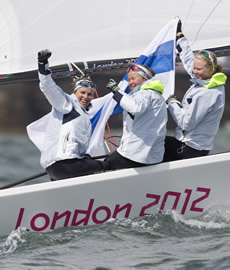 |
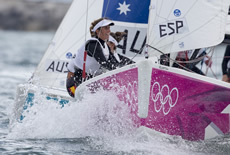 |
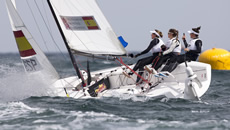 |
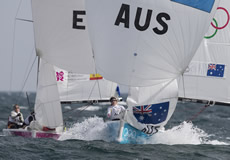 |
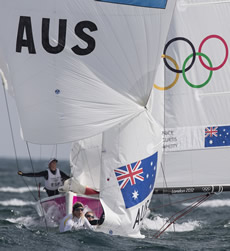 |
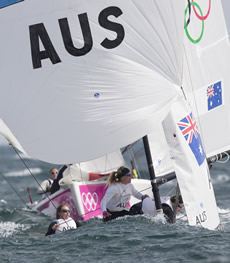 |
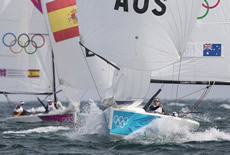 |
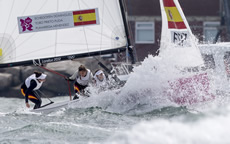 |
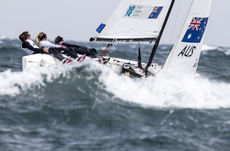 |
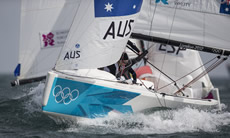 |
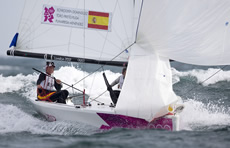 |
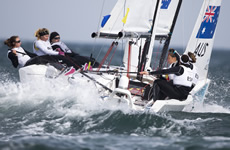 |
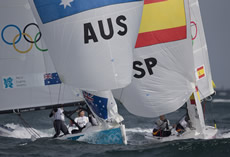 |
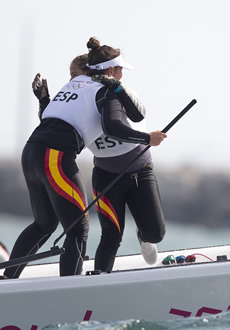 |
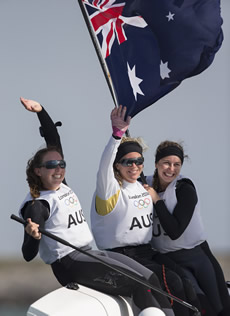 |
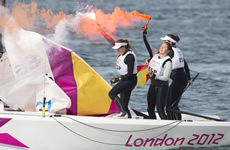 |
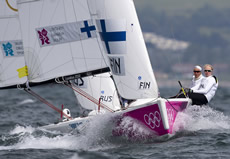 |
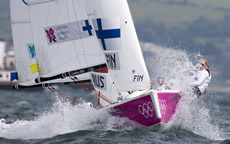 |
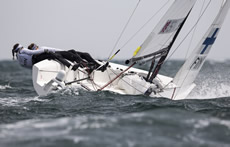 |
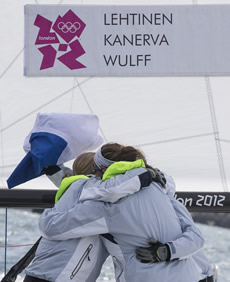 |
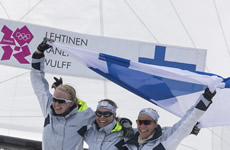 |
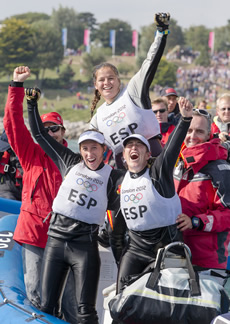 |
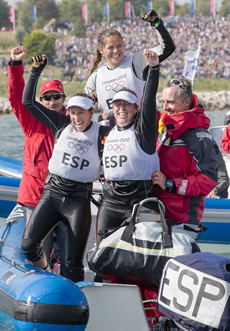 |
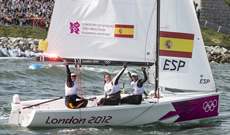 |
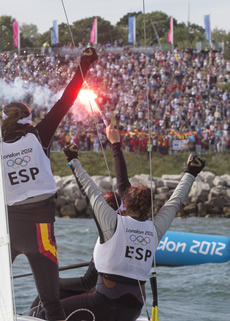 |
 |
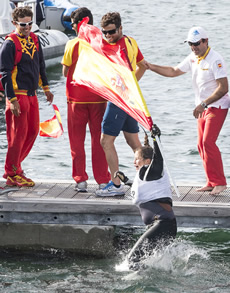 |
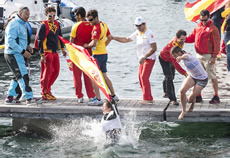 |
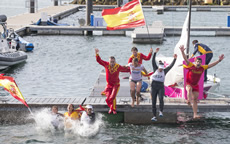 |
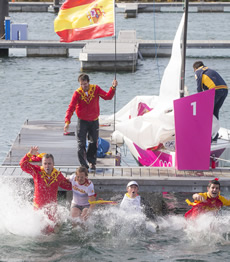 |
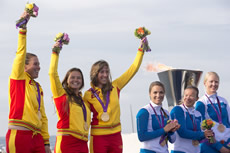 |
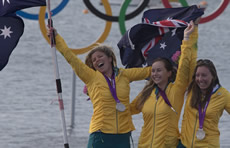 |
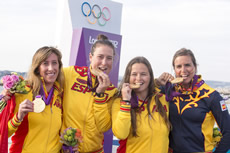 |
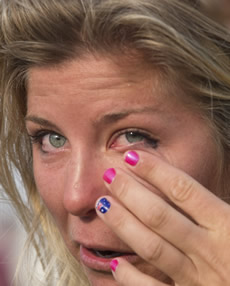 |
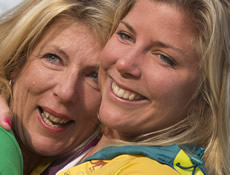 |
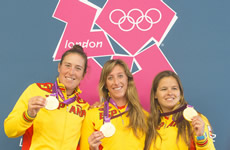 |
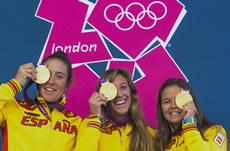 |
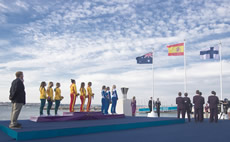 |
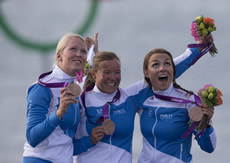 |
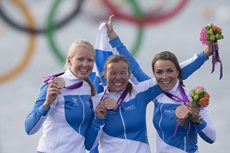 |
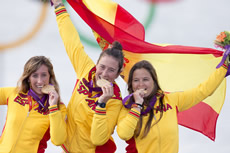 |
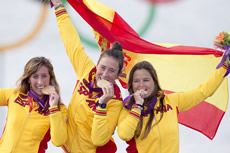 |













Latest Comments
Add a comment - Members log in